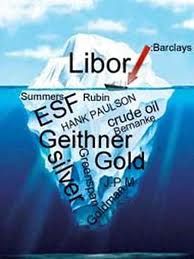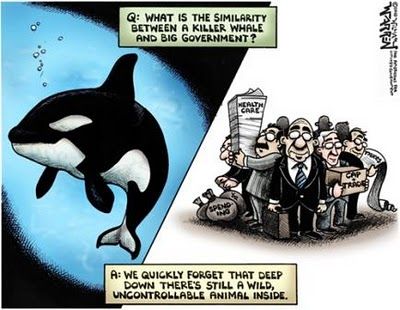Cross posted from The Stars Hollow Gazette
 If you think for that the Justice Department in this administration is going to prosecute or regulate any of the people who were involved in the LIBOR scandal, erase that thought. Regardless of any evidence the government may have now or in the future that would send the average trader to prison for life, the main goal for Attorney General Eric Holder is to protect the banksters from prosecution. There was no reason to give immunity from prosecution of the Commodities Exchange Act. Since the government already had the e-mails, they had enough to issue subpoenas and arrest warrants. Instead, Holder’s office gave them immunity from prosecution:
If you think for that the Justice Department in this administration is going to prosecute or regulate any of the people who were involved in the LIBOR scandal, erase that thought. Regardless of any evidence the government may have now or in the future that would send the average trader to prison for life, the main goal for Attorney General Eric Holder is to protect the banksters from prosecution. There was no reason to give immunity from prosecution of the Commodities Exchange Act. Since the government already had the e-mails, they had enough to issue subpoenas and arrest warrants. Instead, Holder’s office gave them immunity from prosecution:
A crucial element in any prosecution is criminal intent, and it’s plain from the Barclays e-mails that various participants knew that what they were doing was wrong. As one Barclays trader put it in e-mails to traders at other banks, “don’t talk about it too much,” “don’t make any noise about it please” and “this can backfire against us.”
Faced with what would seem to be an open-and-shut case, how did the Justice Department proceed? Barclays entered into a nonprosecution agreement in which the United States government agreed not to prosecute Barclays as long as it met its other obligations under the agreement, including continued cooperation in what the government said was an investigation still under way. Barclays also received a conditional grant of immunity from the antitrust division. [..]
The United States government “had the smoking guns,” Professor (John C.) Coffee said, and “it could have demanded its price from Barclays,” including a guilty plea to a crime. At the same time, the agreement “isn’t surprising,” he said. “The Department of Justice has done this in almost every major case since the collapse of Arthur Andersen.” (Andersen was the accounting firm indicted after the collapse of Enron.)
Glen Ford nails precisely why there will be no prosecutions, since the ultimate aim is “protecting the banks from the consequences of their crimes:”
“The reason Eric Holder is staging criminal investigations is because that’s the only way he can protect the bankers, through immunities and by gradually narrowing the scope of the case.”
The Obama Justice Department is in theater mode, again, pretending to threaten the bankster class with criminal penalties – prison time! – for their manipulation of the global economy’s benchmark interest rates. The Justice Department claims to be building criminal and civil cases in the LIBOR scandal, which in sheer scope is the biggest fraud by international capital in history. But that’s all a front, a farce. Barack Obama has spent his entire presidency protecting Wall Street, starting with his rescue of George Bush’s bank bailout bill after it’s initial defeat in Congress, in the last days of Obama’s candidacy. He packed his administration with banksters, passed his own bailout and, in collaboration with the Federal Reserve, channeled at least $16 trillion dollars into the accounts of U.S. and even European banks – by far the greatest transfer of capital in the history of the world. Obama has reminded the banksters that it was he who saved them from the “pitchforks” of an outraged public. He pushed through Congress so-called financial reform legislation that left derivatives – the deadly instruments of mass financial destruction that were at the heart of the meltdown – untouched. [..]
Now Obama and Holder are playing the same diversionary game, making tough noises about criminal investigations of the LIBOR conspirators. But the Justice Department has already given immunity to Barclay’s Bank, of Britain, and to the Swiss banking giant UBS. More immunities will follow. The reason Eric Holder is staging criminal investigations is because that’s the only way he can protect the bankers, through immunities and by gradually narrowing the scope of the case. In the end, there will be settlements all around, and the banksters will move on to even more fantastic heights of criminality – thanks to the loyal, protective hands of President Obama.
Prosecutions? Don’t hold you breath.

 That $2 billion
That $2 billion